Affiliate links on Android Authority may earn us a commission. Learn more.
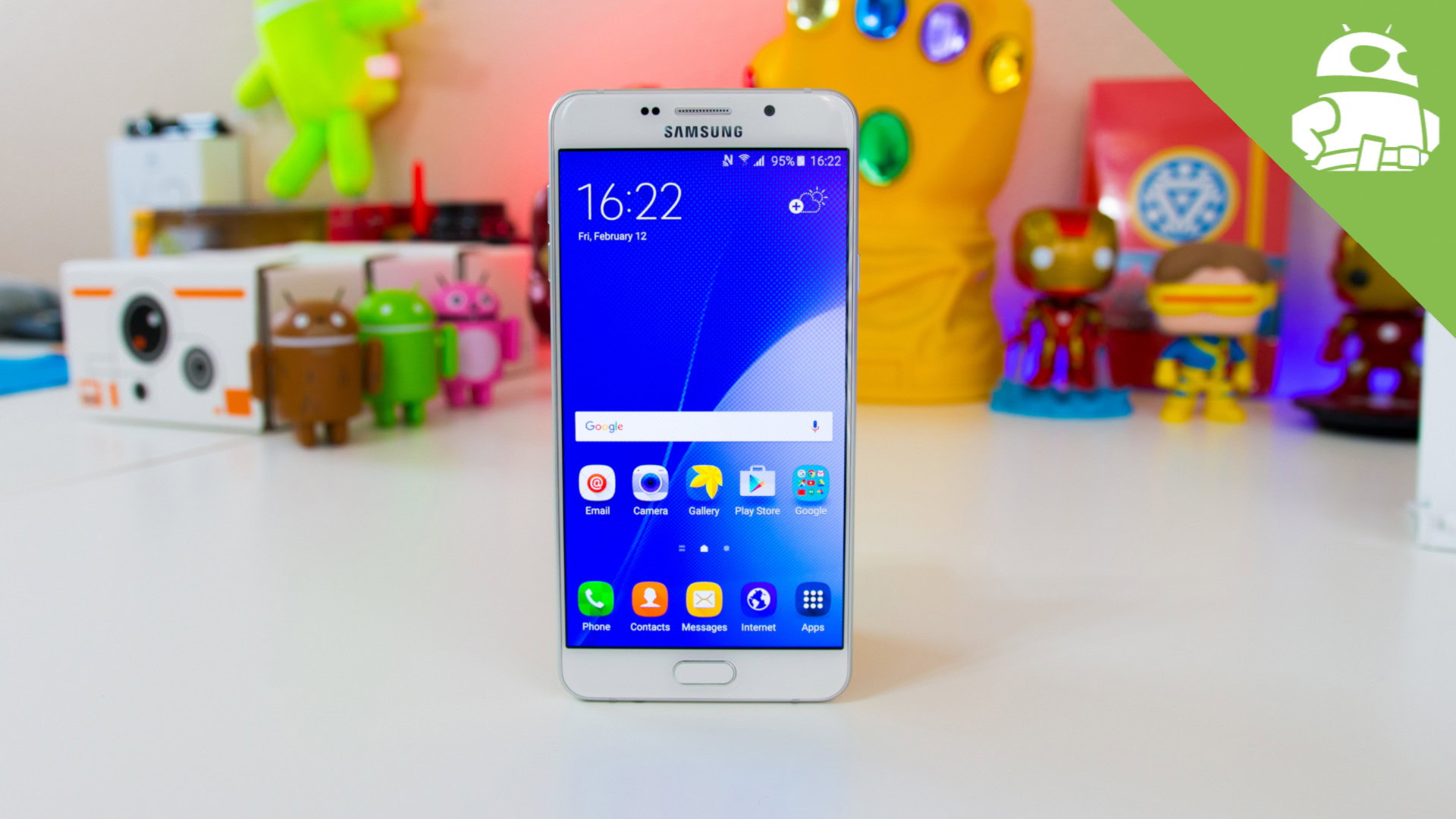
Samsung Galaxy A7 (2016)
What we like
What we don't like
Our scores
Samsung Galaxy A7 (2016)
When the Galaxy A line was first introduced by Samsung more than year ago, the series brought with it the company’s first experimentation with build materials, with all these smartphone being made entirely of metal. Since then, Samsung seems to have found a more definite path in terms of design and build quality, but the Galaxy A series continues to be a way for Samsung to bring flagship characteristics to a more budget-friendly package.
SEE ALSO: Samsung Galaxy A9 review
While the devices that are a part of the 2016 edition of the series are available in a variety of sizes and offer differing specifications and features, what we’re looking at here is one of the more high-end offerings of the line, overshadowed by only the even more premium and newly-introduced Samsung Galaxy A9. What does this other Galaxy A device have to offer? We find out, in this in-depth Samsung Galaxy A7 (2016) review!
Design
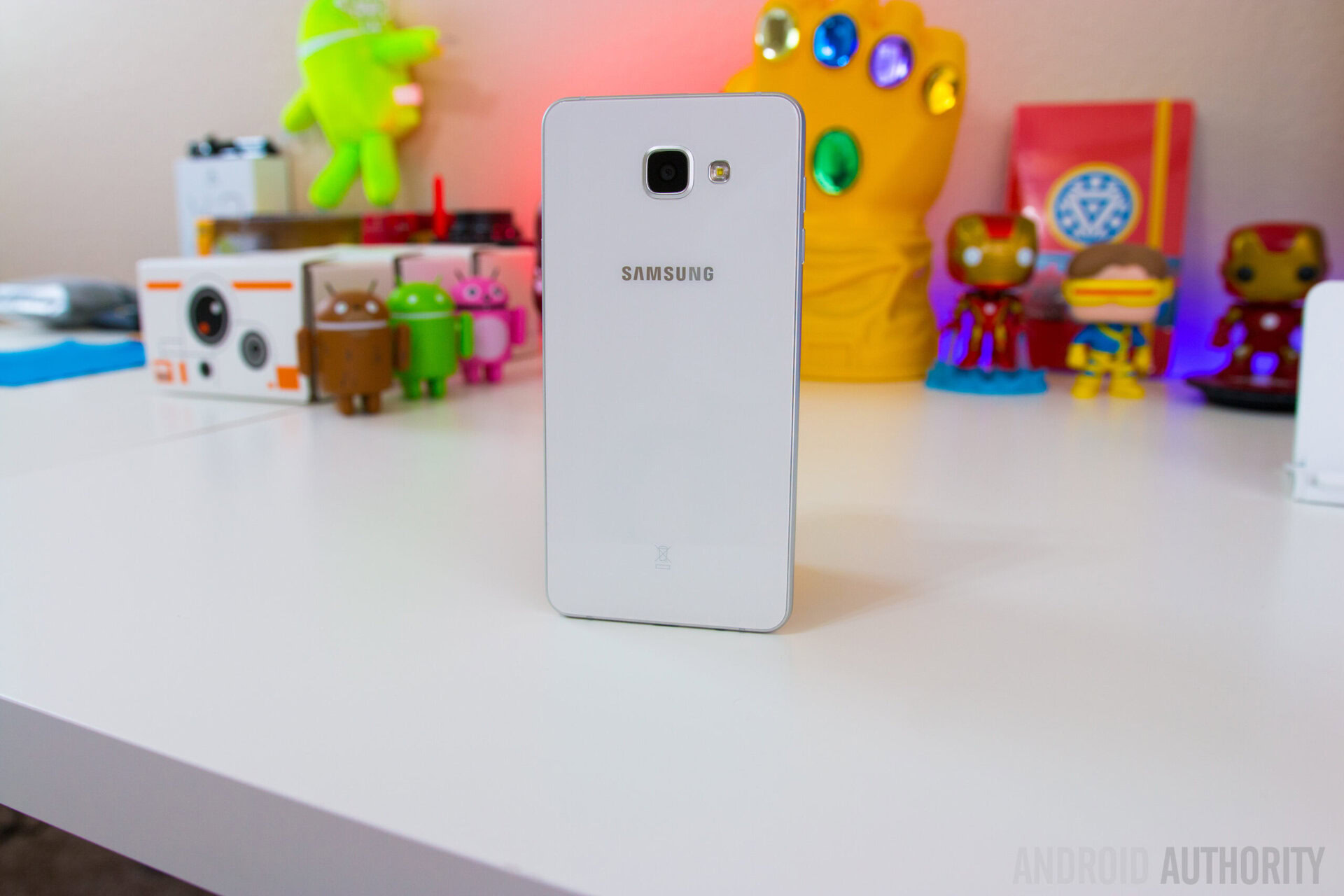
In terms of design and build quality, what the Samsung Galaxy A7 is essentially is a overgrown Galaxy S6, with the former featuring a similar design language and identical construction as the latter. Other than the size, the Galaxy A7 is a little more angular in its shape as well, with less rounded corners, but there is definitely an element of familiarity to it. The Galaxy A7 may not pack as much when it comes to power and features when compared to its flagship counterpart, but you do certainly get the look and feel of a premium high-end phone here.
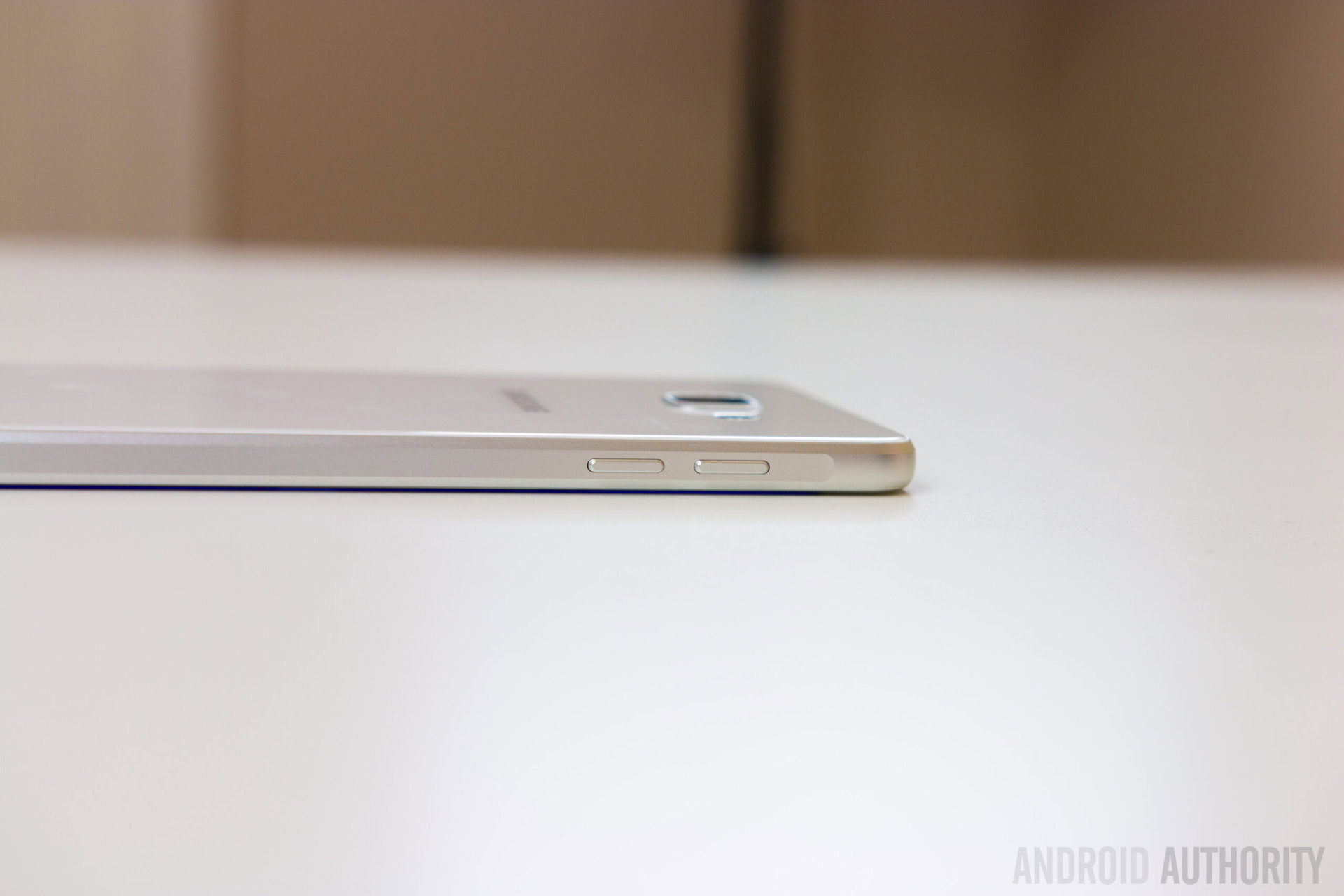
You’ve got glass panels on the front and back that are held together with a smooth, chamfered metal frame that rounds out along the top and bottom, but flattens out along the sides, as is also seen with the Galaxy S6. While the predominant presence of glass does make for a somewhat slippery device, the flat metal sides help a lot with the grip. Glass is also pretty atrocious when it comes to keeping fingerprints and smudges at bay, so you’ll have to make an effort to keep the device looking pristine, unless you pick up the white version, where these are not as noticeable.
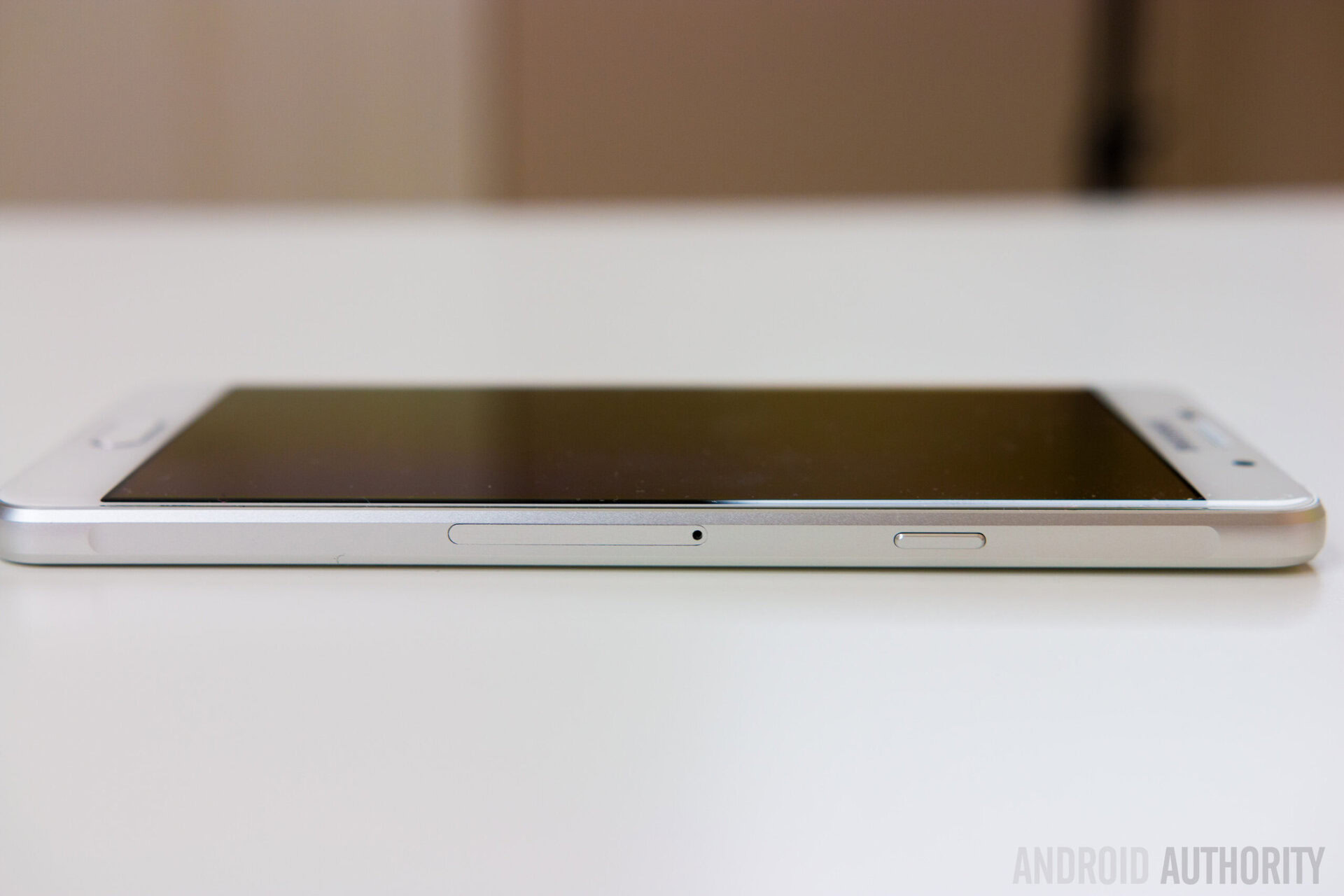
As expected, everything else is in its typical positions for a Samsung phone. The power button and volume rocker are to right and left respectively, and the metal-clad buttons offer a good amount of tactile feedback. With the Galaxy A7 being a touch more budget-friendly, it is not surprising that some flagship features, like the heart rate monitor on the back, are missing. However, you do get a fingerprint scanner here, once again integrated into the physical home button up front, which is flanked by the capacitive back and Recent Apps keys. At the bottom is the headphone jack, the microUSB port, and the single speaker unit.
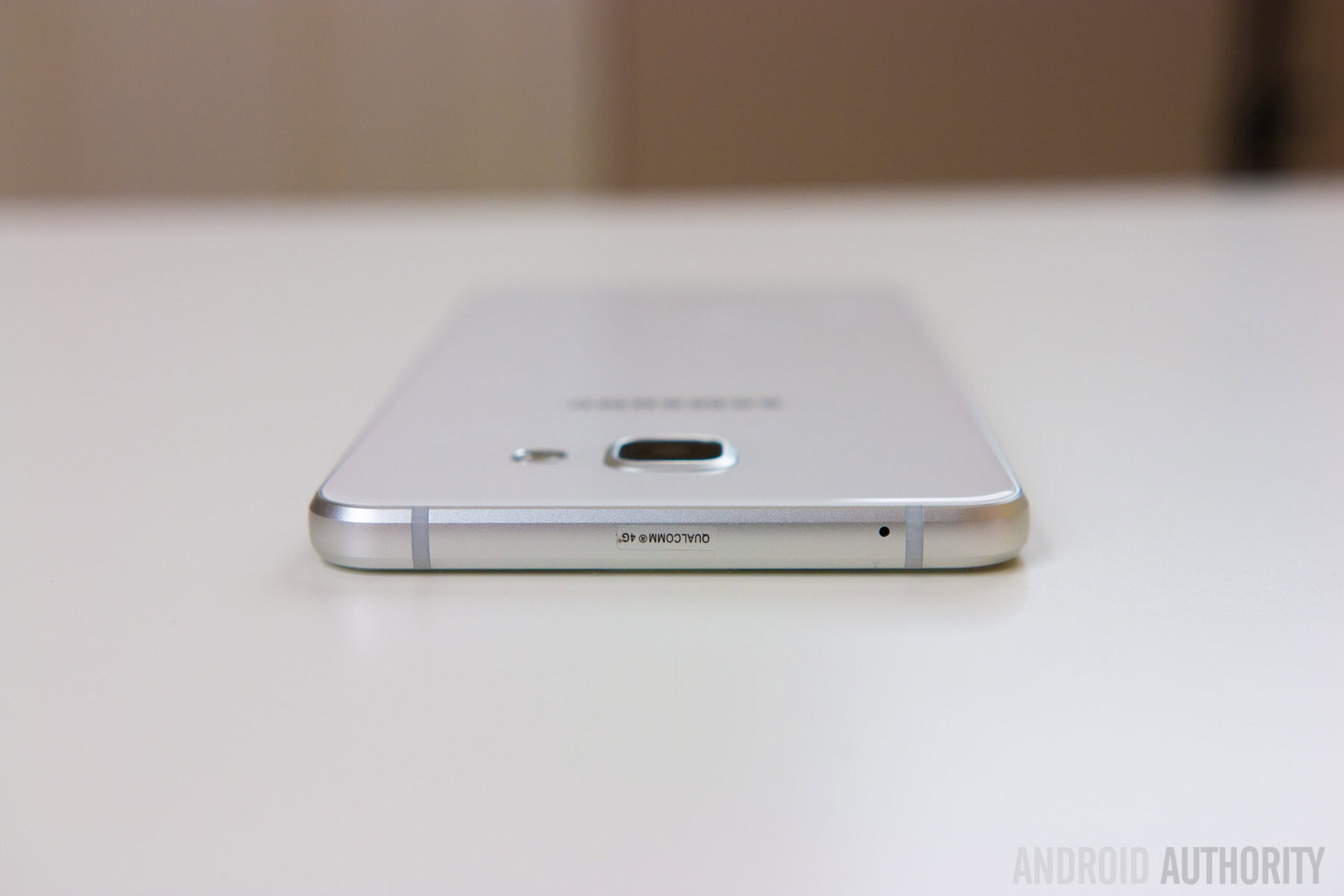
With its 5.5-inch display, the Galaxy A7 is a decently-sized smartphone, and if you are switching from another device with a similar screen size, you’ll feel right at home with the Galaxy A7 in your hand. Samsung has also done a great job with keeping the bezels along the sides of the display very thin, and along with its thin profile, one-handed use with the Galaxy A7 is a lot more comfortable that what you’d expect. With a weight of 172 grams, the Galaxy A7 is also on the heavier side, and allows for a solid and substantial feel while holding the device, making the slippery glass backing less of a worry.
Display
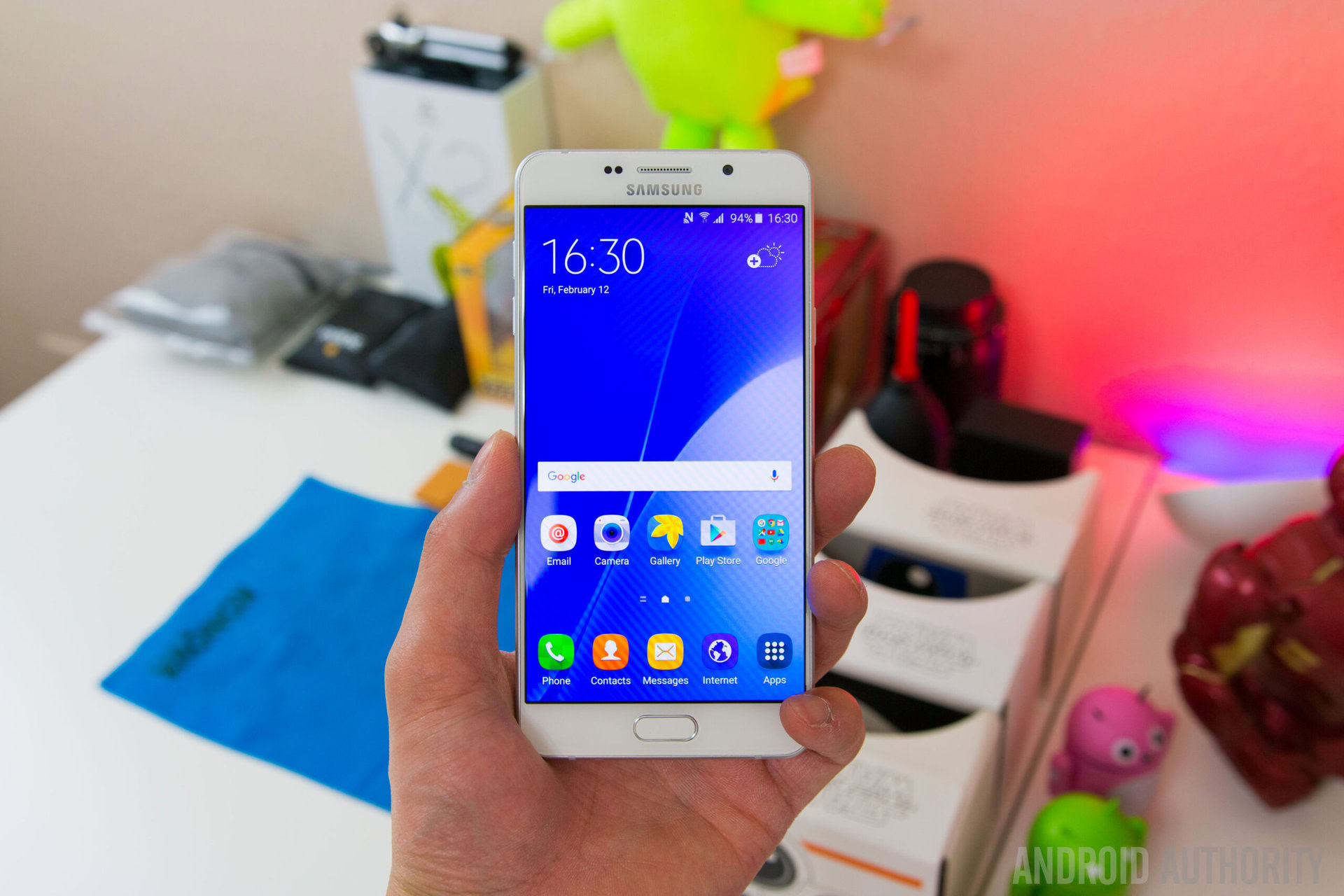
The Galaxy A7 comes with a 5.5-inch Super AMOLED display, with a 1920 x 1080 resolution, resulting in a pixel density of 401 ppi. Quad HD may be considered the new standard, but Full HD more than just gets the job done, with Super AMOLED also playing its part in creating a great viewing experience. Everything from saturated, punchy colors, to the deep inky blacks are seen here, along with good viewing angles and brightness that allows for comfortable outdoor visibility. Web browsing, reading text, watching videos, or playing games are all very enjoyable on this screen, and you certainly won’t find yourself missing a higher resolution.
Performance
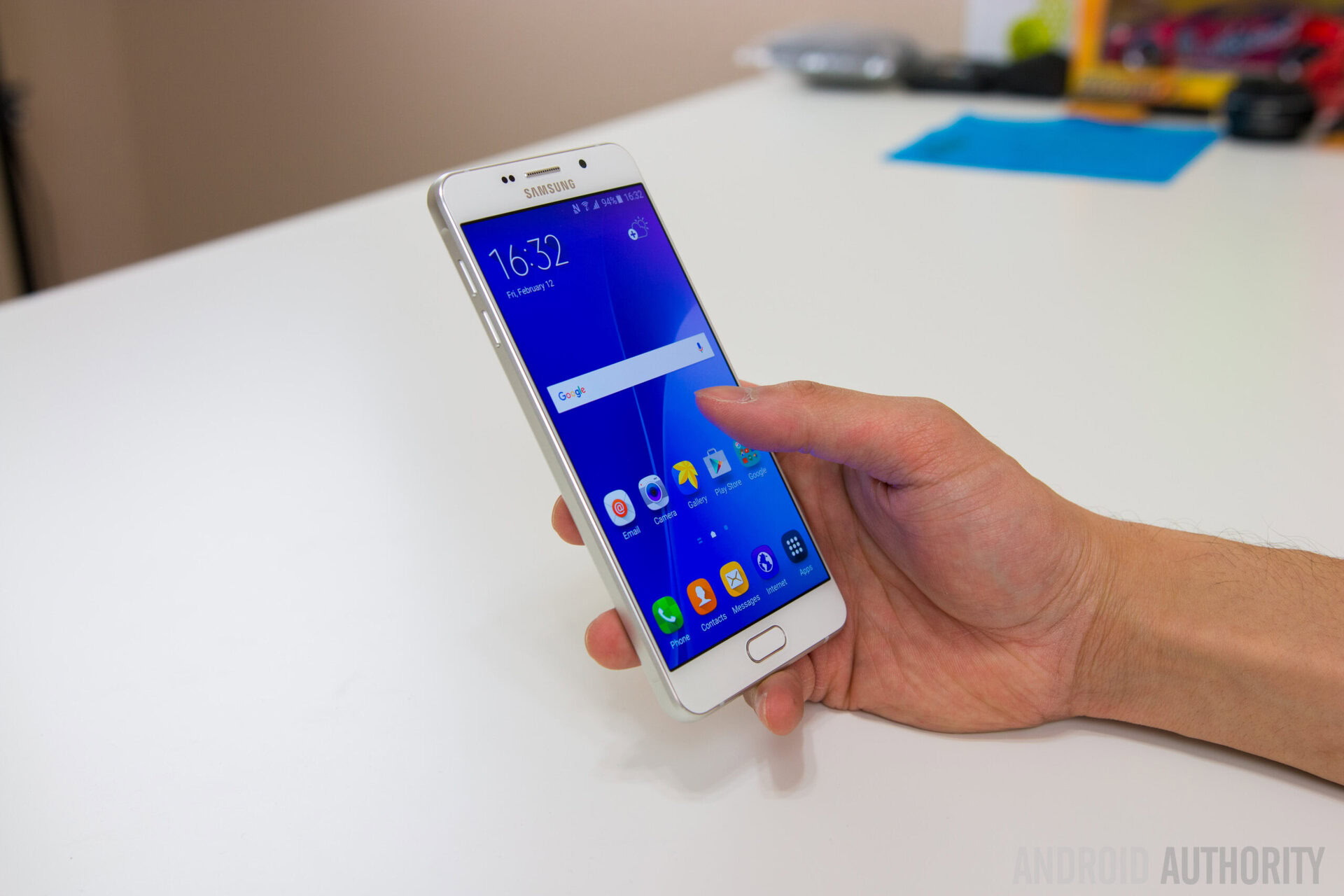
Under the hood, this version of the Galaxy A7 comes with an octa-core Qualcomm Snapdragon 615 processor, clocked at 1.5 GHz, and backed by the Adreno 405 GPU and 3 GB of RAM, but depending on the market, there is also an iteration that is powered by the octa-core Exynos 7580 processor, and backed by the Mali-T720MP2 GPU. In the case of this Snapdragon-powered review unit, the performance has been what you’d expect from this processing package, which has been the 2015 mid-range standard.
It runs reasonably well for the most part, and handles everything from web-browsing to multi-tasking, and even graphically-intensive gaming, perfectly well. However, there are occasional instances of animation stutter throughout the interface. It is very noticeable when it does happen, and the lag is almost always seen when moving from the Flipboard second screen to the main homescreen. Granted the latter is an issue with the high-end Samsung devices as well, but with the slower chipset in play here, the stutter is far more apparent. Some sluggishness is also seen when scrolling the pages and elements of certain apps, such as Snapchat.
Hardware

16 GB of on-board storage is the only option available here, but luckily, Samsung decided to bring expandable storage back into the fold with the Galaxy A series, allowing for an additional storage capability via microSD card by up to 128 GB. Some versions of the device, depending on the market, also come with dual-SIM capabilities, in which case the secondary SIM slot is what serves as the microSD card slot. In the single SIM versions of the phone, a dedicated microSD card slot is to be found.
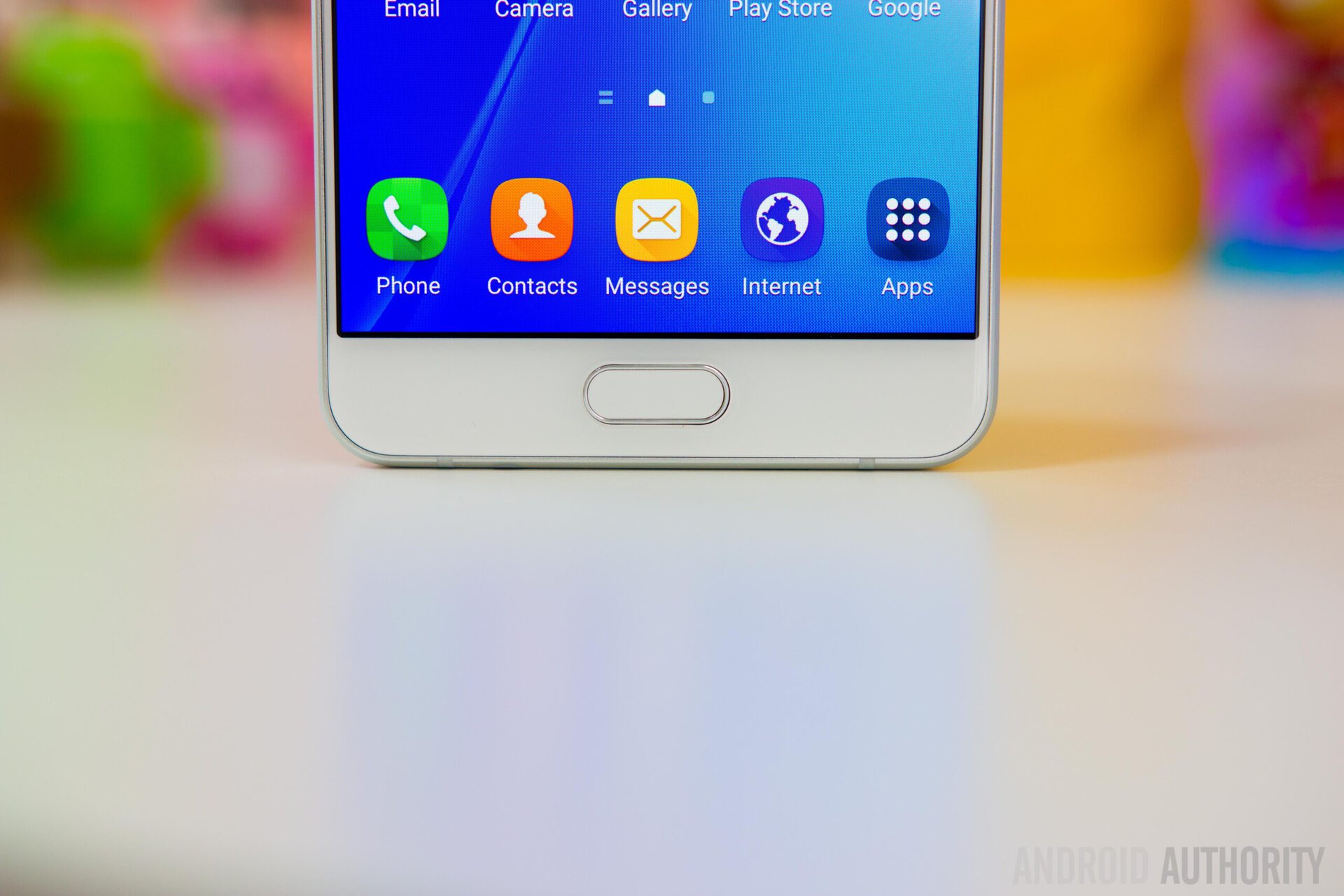
As mentioned, the Galaxy A7 comes with a fingerprint scanner that is integrated into the tactile home button up front. This is the same implementation as seen with the Galaxy Note 5 and the Galaxy S6 before it, and works well. The setup process is a little longer when compared to some competing devices out there, but once you’re ready to go, the scanner is reliable, accurate, and generally pretty fast at unlocking the phone. Apart from unlocking the device, the fingerprint reader also sees its advantage when being used with Samsung Pay.
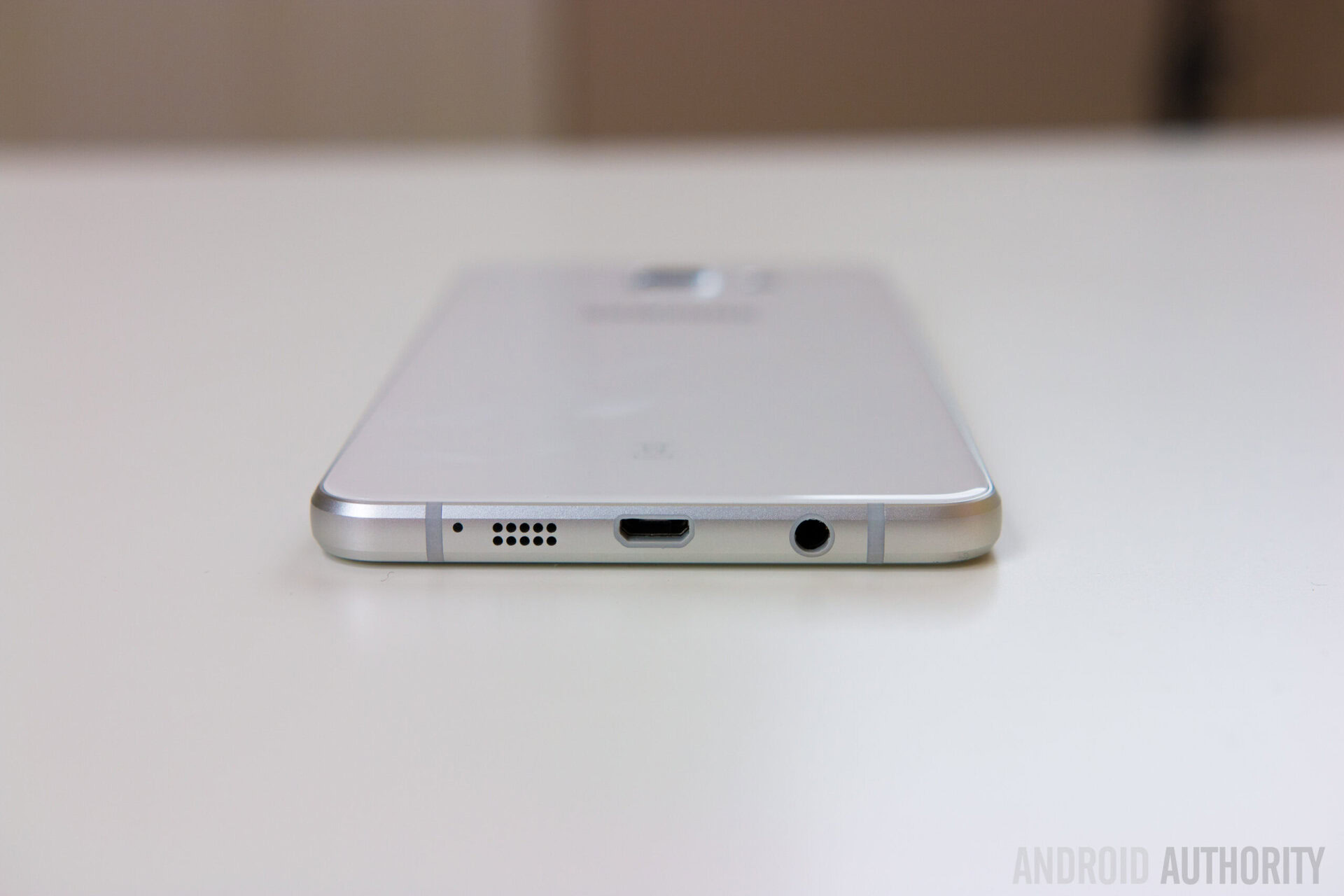
The single speaker unit is found at the same position at the bottom, as is the case with its flagship counterparts, and offers a similar sound quality. While the speaker gets decently loud and produces a clean and clear sound without any distortion even at higher volumes, you are of course, not getting the quality that is available with dual front-facing speaker setups.
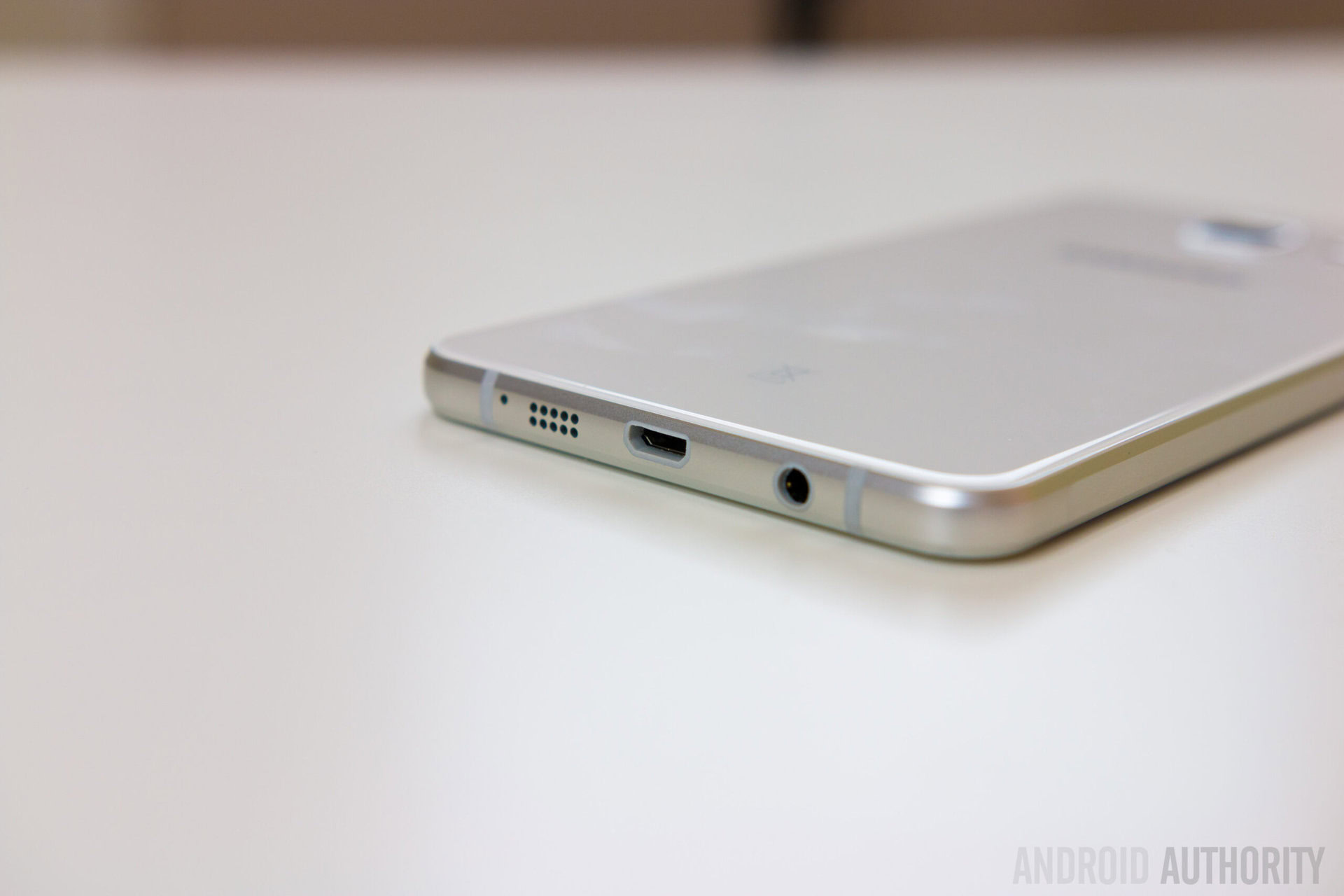
The Galaxy A7 comes with a standard suite of connectivity options, including NFC. However, as far as network connectivity is concerned, there are quite a few versions of the device floating around, but unfortunately, none of them are intended for the US market, which means that you’ll have a hard time getting any sort of 4G LTE connectivity with the Galaxy A7. HSPA+ does get the job done, but for those that definitely want LTE in the US, this smartphone will unfortunately fall out of consideration.
Moving on to the battery, the Galaxy A7 comes with a large 3,300 mAh unit that provides a battery life that has been extremely good. With normal usage, the device comfortably lasted through a full day of use, and more often than not, survived an additional half a day as well. The screen-on time has been easily surpassing the 4 hour mark, and has been around 5 hours on most days. Wireless charging may not be available, but the Galaxy A7 does come with fast charging capabilities, which is useful when needing to quickly recharge a battery of this size. The Galaxy S6 has been plagued with battery life issues, but seeing as to how Samsung seems to have figured this aspect out with the Galaxy A series, is hopefully a pre-cursor for what we can expect with the upcoming Galaxy S7.
Camera
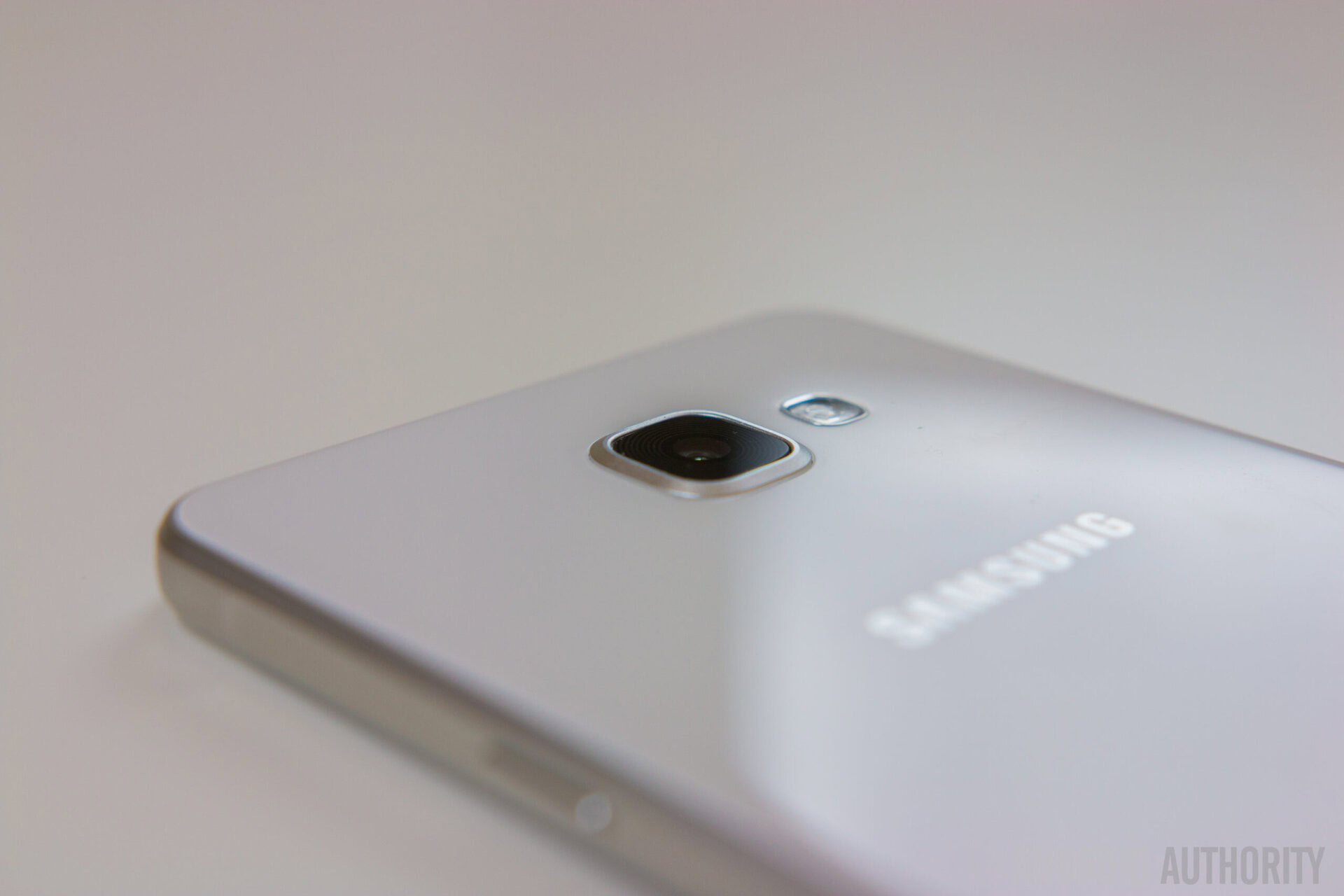
One of the biggest complaints with Samsung’s high-end offerings last year was the camera bulge, and while it hasn’t been completely eliminated with the Galaxy A7, the protrusion of the camera lens is significantly smaller this time around, and from an aesthetics standpoint, it definitely looks a lot cleaner.
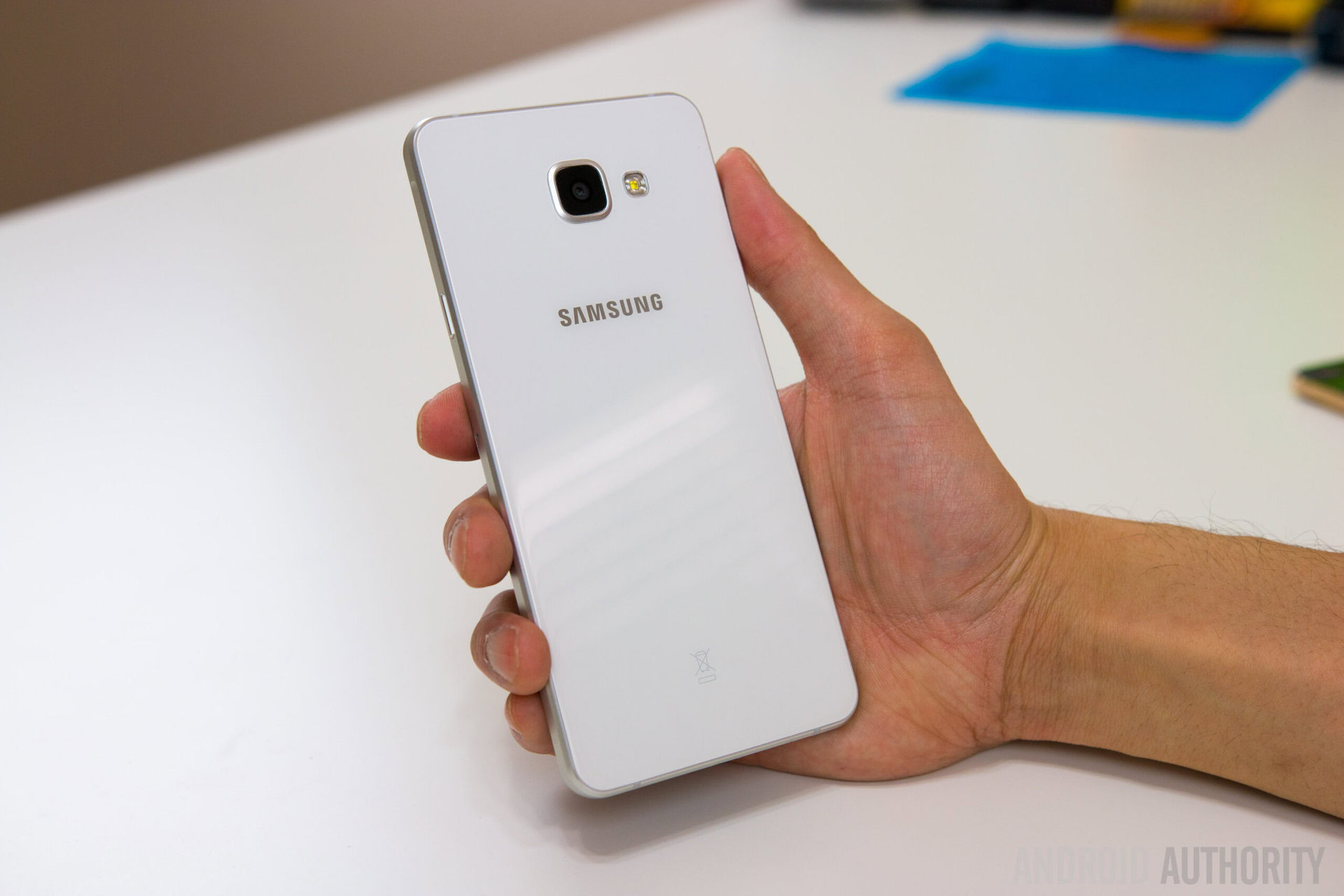
The Galaxy A7 comes with a 13 MP rear camera with a f/1.9 aperture and optical image stabilization, but as you’d expect the camera experience doesn’t quite live up to what you’ll find on Samsung’s flagship devices. The camera doesn’t come with video recording capabilities in 4K, there is no Youtube live streaming feature, as well as no HDR Auto. The HDR toggle on the main camera interface is also missing, which makes switching between Auto mode and HDR and little more cumbersome than I’d like. What is retained, however, is the ability to quickly launch the camera with a simple double tap of the home button, a feature that was first introduced with the Galaxy S6.
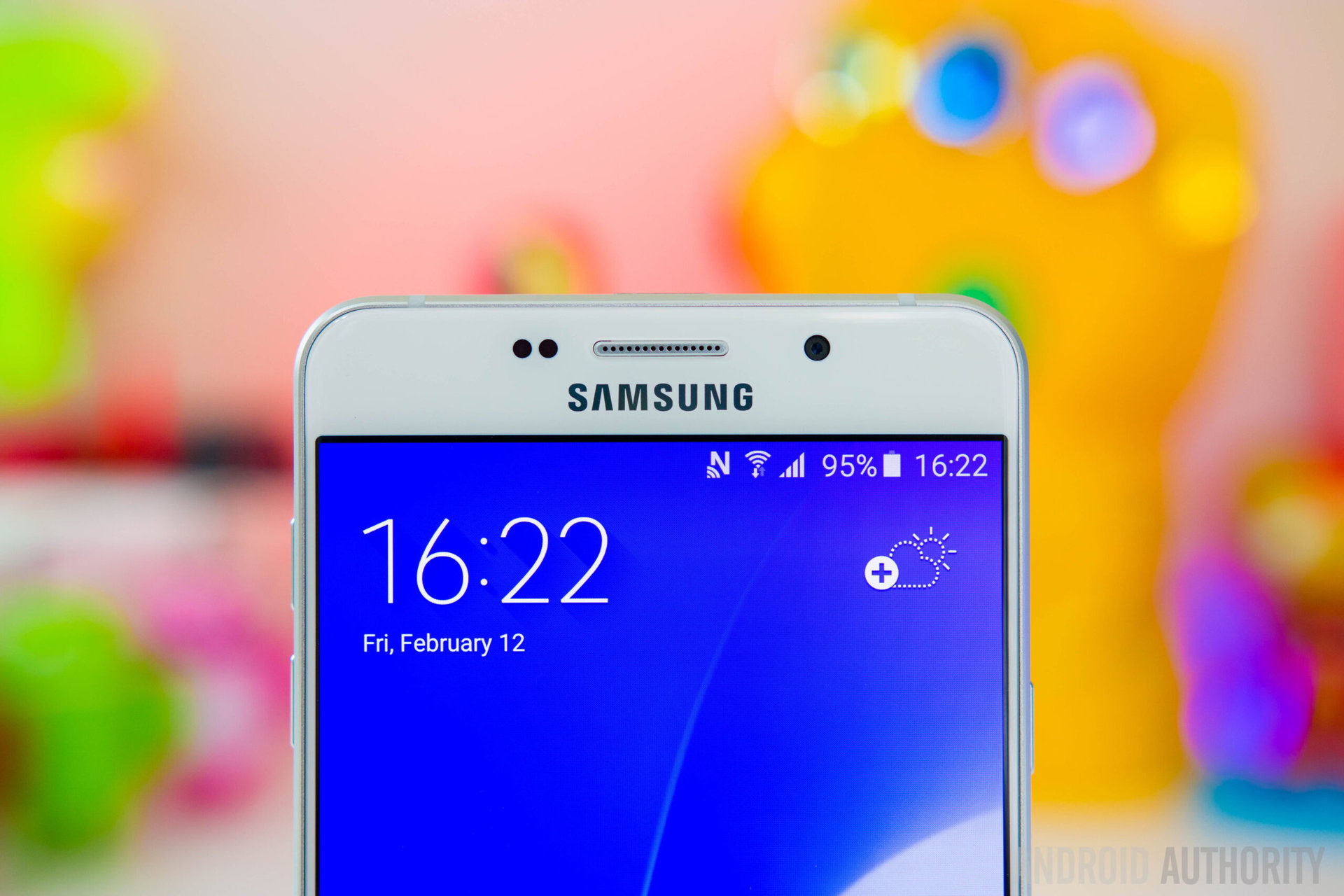
As far as image quality is concerned, the shots possible with the Galaxy A7 are unfortunately mediocre at best. You can get some good looking photos in the right lighting conditions, but even when the environment is too bright, you will see a lot of overblown highlights and crushed shadows. The Galaxy A7 also seems to lack the typical Samsung post processing that results in vibrant colors and sharpness, making for images that appear quite dull. HDR mode does provide a more balanced shot and adds a slight boost to the colors, but without HDR Auto, you will have to remember to switch to HDR mode every time the camera is launched.
You will also see a lot of noise creeping in to the shots in medium to low light situations. Details begin to look extremely soft, colors are lacking, and you are still getting the overblown highlights that are seen in pictures taken in bright conditions. The camera of the Galaxy A7 is one that will get the job done, but is far cry from what Samsung has shown themselves to be capable of.
Software
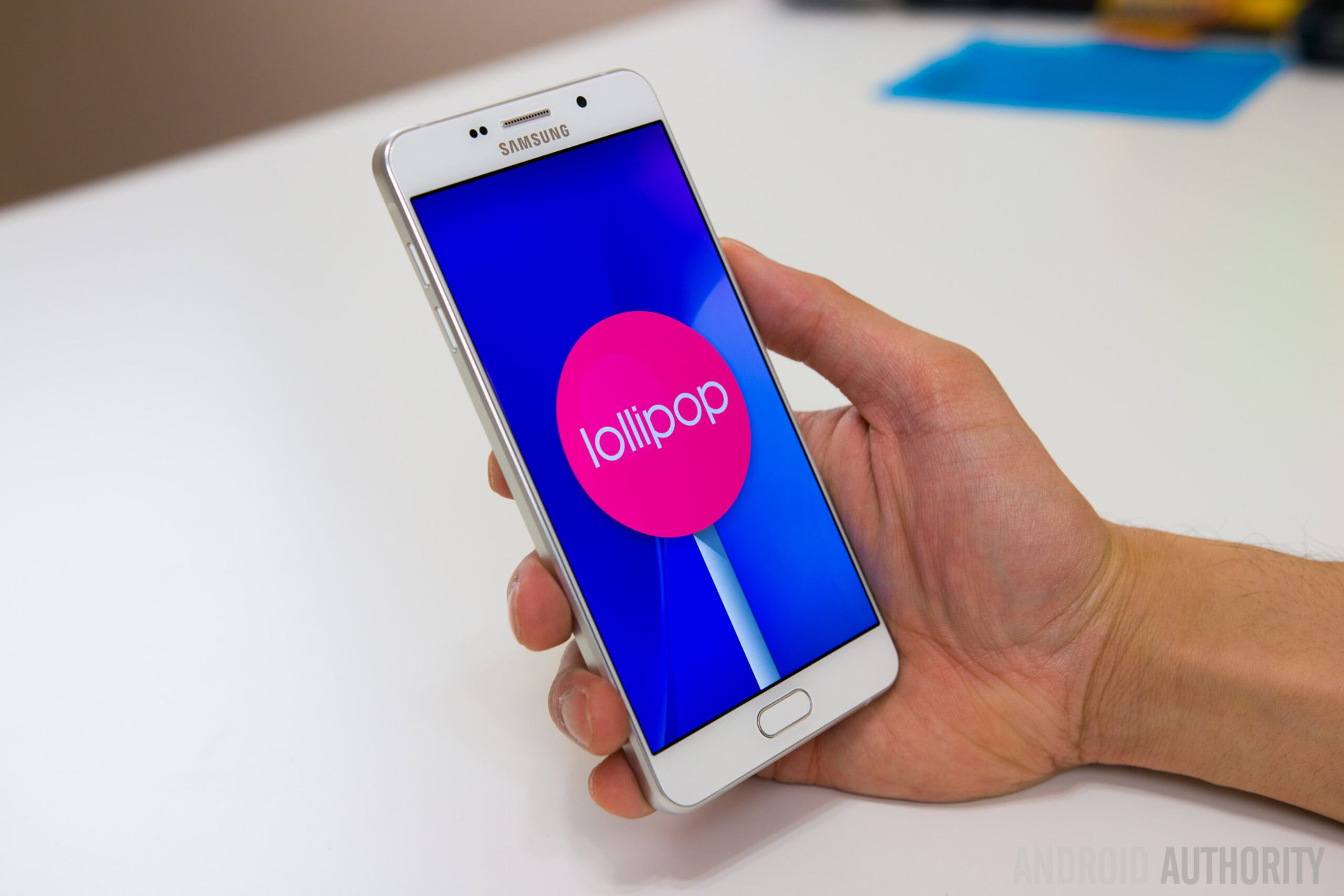
On the software side of things, the Galaxy A7 is running Android 5.1.1 Lollipop out of the box, with the latest version of TouchWiz on top. While it is disappointing to see Android 6.0 Marshmallow not available on a device launched in 2016, a planned upgrade to the latest version of Android is in the works, and should make its way over shortly. This is the newer version of TouchWiz with the squarish circle icons, as seen with the Galaxy Note 5, and personally the look I prefer. The general look and feel of TouchWiz remains largely the same though, and the software experience is pretty much identical to what is available with something like the Galaxy S6.
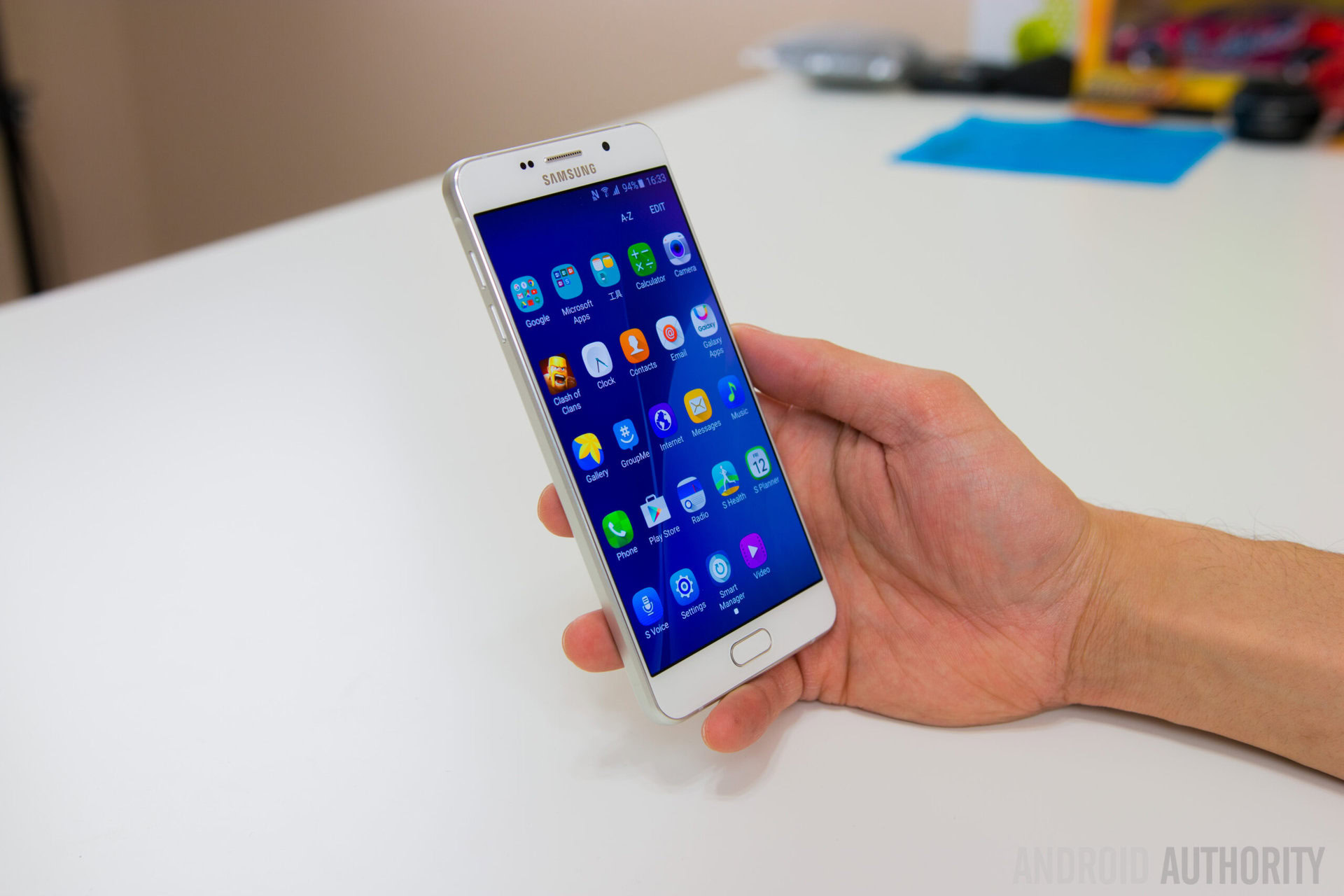
Multi-window is available to cover all your split screen multi-tasking needs, there are useful motion gestures included, such as the swiping your palm over the screen to take a screenshot, a one-handed mode can be activated by a triple tap of the home button, and finally, the robust theme store is also found this time around. The theme store remains one of the best additions to the TouchWiz UI, and with numerous themes to choose from, you can easily cater the look and feel of the UI to your liking.
Specifications
| DIsplay | 5.5-inch Super AMOLED display Full HD resolution, 401 ppi |
|---|---|
Processor | 1.5 GHz octa-core Qualcomm Snapdragon 615 Adreno 405 GPU |
RAM | 3 GB |
Storage | 16 GB expandable via microSD card by up to 128 GB |
Connectivity | Wi-Fi 802.11 a/b/g/n/ac Bluetooth 4.1 GPS+GLONASS NFC FM Radio with RDS microUSB 2.0 |
Cameras | 13 MP rear camera, f/1.9 aperture, OIS, LED flash 8 MP front-facing camera, f1/.9 aperture |
Battery | 3,300 mAh |
Software | Android 5.1.1 Lollipop |
Dimensions | 151.5 x 74.1 x 7.3 mm 172 grams |
Gallery
Pricing and final thoughts
The Galaxy A7 hasn’t officially been launched in the US, but can be found on eBay from anywhere in the $400 – $500 range, depending on your preference of color, with a choice between gold, pink, white, and black.
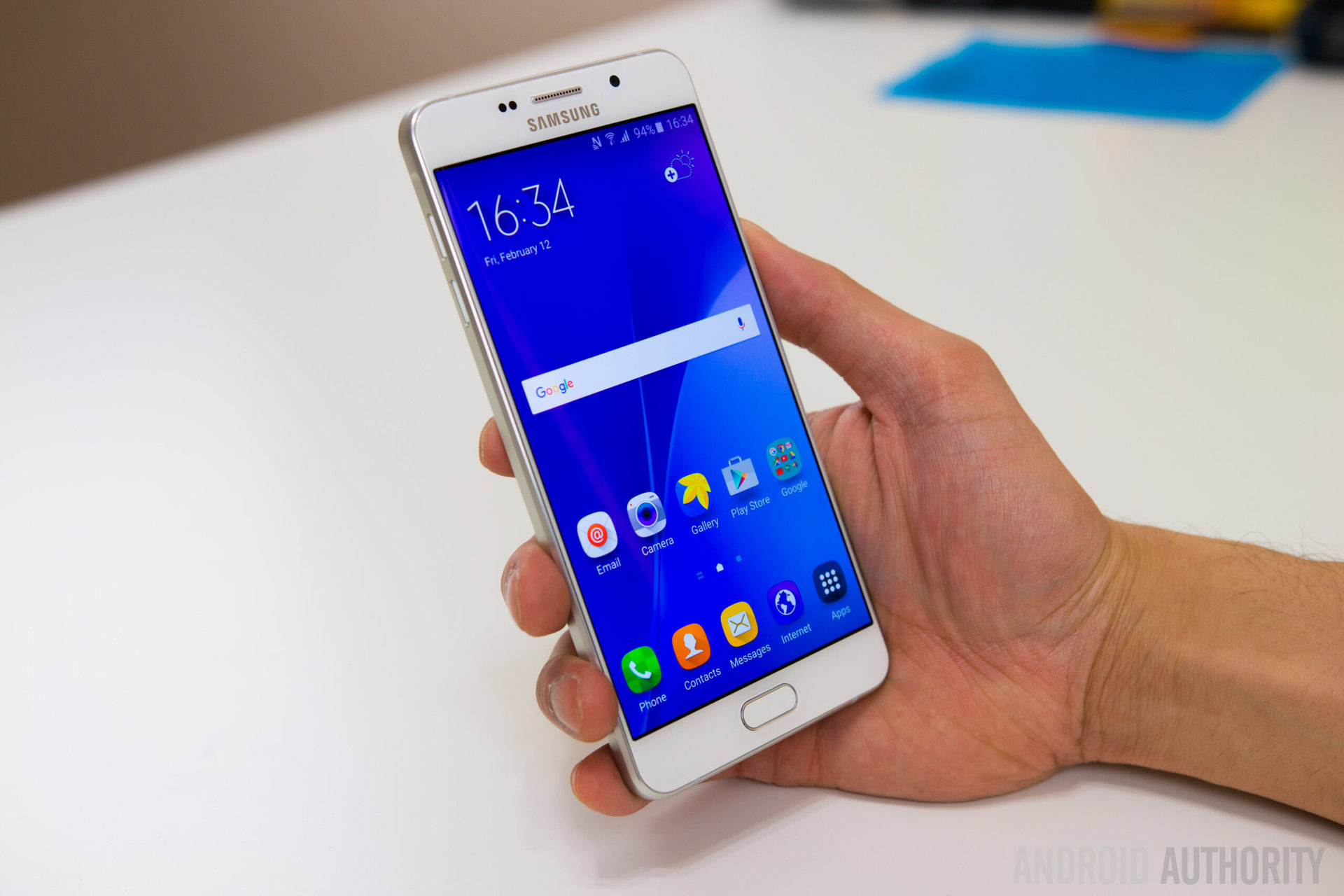
So there you have it for this closer look at the Samsung Galaxy A7! The Galaxy A7 certainly falls towards the higher-end of the “budget-friendly” spectrum, especially if you are trying to import it to the US. At this price range, a lot of other great options are available as well, including devices like the OnePlus X, Nexus 5X, the Moto X Pure Edition, honor 5X, and for a little extra, even the Nexus 6P. Not only will you potentially getting a device that is more powerful with these choices, but also one that will allow for full 4G LTE connectivity in the states.
For those considering picking up the device in other markets, the Galaxy A7 is a solid smartphone that brings a lot of flagship features to a more affordable package. From its premium design and build quality, to the availability of a fingerprint reader, the Galaxy A7 does tick the right boxes, but it is certainly far from a bargain. Considering how much the budget smartphone landscape has changed in just a short period of time, Samsung may have to reconsider a few things in order to allow the Galaxy A7 a fighting chance.